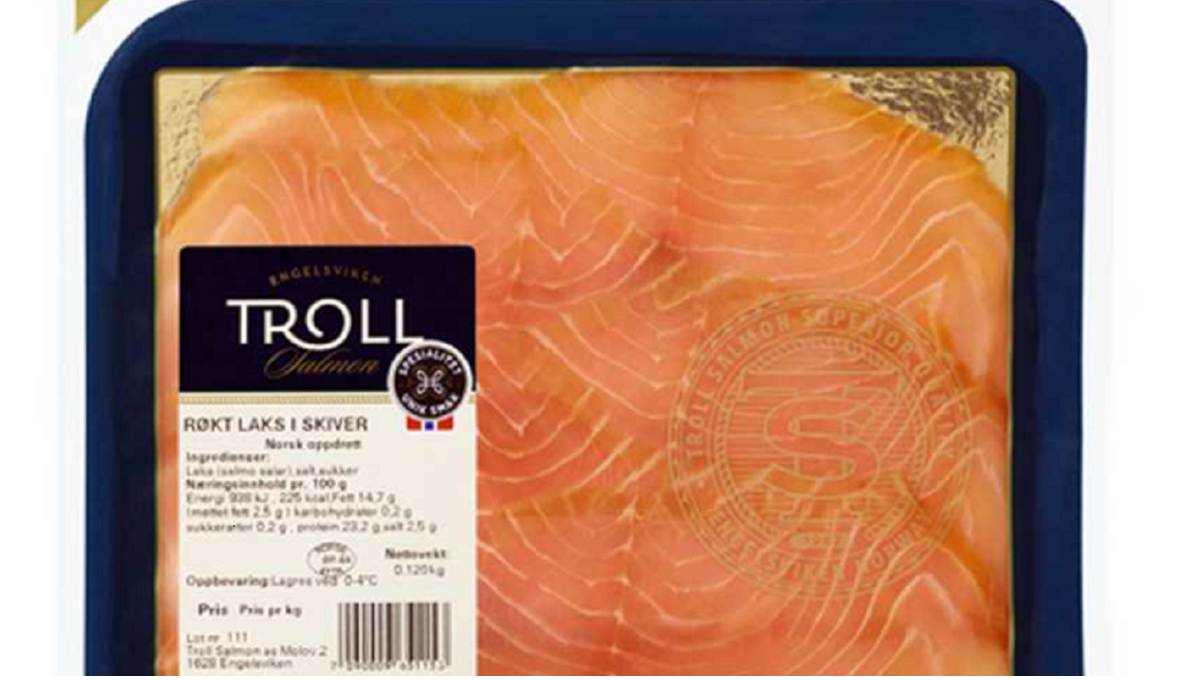Smoked salmon has been linked to a Listeria outbreak in Norway that has sickened four people.
Patient samples were taken between February and August this year and all ill people were hospitalized.
Those affected are aged between 50 and 90 years old. The patients are two women and two men who live in Nordland, Trøndelag, Oslo and Viken.
The Norwegian Institute of Public Health (FHI) said bacteria with the same genetic profile have been found in samples from all four patients, which indicates they were infected by a common source. There is also one suspected case.
Troll Salmon has recalled smoked trout and smoked salmon due to possible Listeria monocytogenes after the pathogen was found in the production environment.
FHI, local health services and microbiological laboratories, the Norwegian Food Safety Authority (Mattilsynet) and Veterinary Institute investigated whether patients had a common source of infection.
Three of four patients interviewed by the Norwegian Food Safety Authority said they ate smoked salmon or smoked trout before they became ill and two of them named smoked salmon from the same producer.
Detected Listeria does not match outbreak strain
Listeria had been found at low levels in a product from Troll Salmon earlier in the year. This sample was a routine test taken as part of the Norwegian Food Safety Authority’s monitoring program for ready-to-eat products in 2022. Officials said the amount of Listeria in the sample was so low that it posed no health risk.
After an inspection at Troll Salmon, several environmental samples were analyzed at the Veterinary Institute. Listeria monocytogenes was found in some of them but isolates did not match the outbreak strain.
However, the Norwegian Food Safety Authority told the company to remove several products from the market.
The recall affects certain batch numbers of sliced smoked trout with pack sizes 250-grams, 200-grams and 100-grams and sliced smoked salmon 250-grams, 120-grams and 100-grams. Products have expiry dates from Oct. 17 to Nov. 10, 2022.
Almost 20,000 packs were sent to retail chains Rema 1000, Coop, and NorgesGruppen across the country or sold online.
Troll Salmon advised consumers who had bought the products to throw them away or return them to the place of purchase. The company is taking steps to find the source of the outbreak strain and extra cleaning of the site and equipment has been carried out.
About Listeria infections
Food contaminated with Listeria monocytogenes may not look or smell spoiled but can still cause serious and sometimes life-threatening infections. Anyone who has eaten any recalled product and developed symptoms of Listeria infection should seek medical treatment and tell their doctors about the possible Listeria exposure.
Also, anyone who has eaten any of the recalled products should monitor themselves for symptoms during the coming weeks because it can take up to 70 days after exposure to Listeria for symptoms of listeriosis to develop.
Symptoms of Listeria infection can include vomiting, nausea, persistent fever, muscle aches, severe headache, and neck stiffness. Specific laboratory tests are required to diagnose Listeria infections, which can mimic other illnesses.
Pregnant women, the elderly, young children, and people such as cancer patients who have weakened immune systems are particularly at risk of serious illnesses, life-threatening infections, and other complications. Although infected pregnant women may experience only mild, flu-like symptoms, their infections can lead to premature delivery, infection of the newborn, or even stillbirth.
(To sign up for a free subscription to Food Safety News, click here.)

